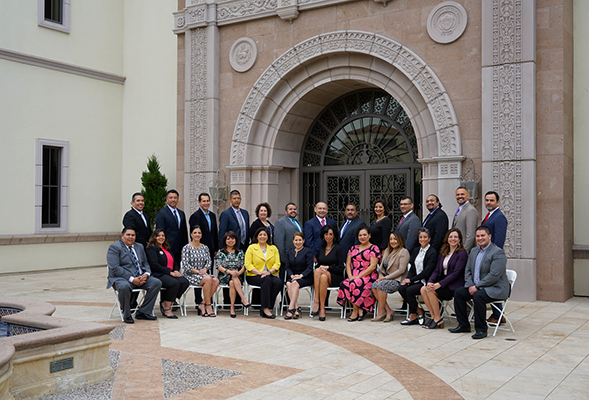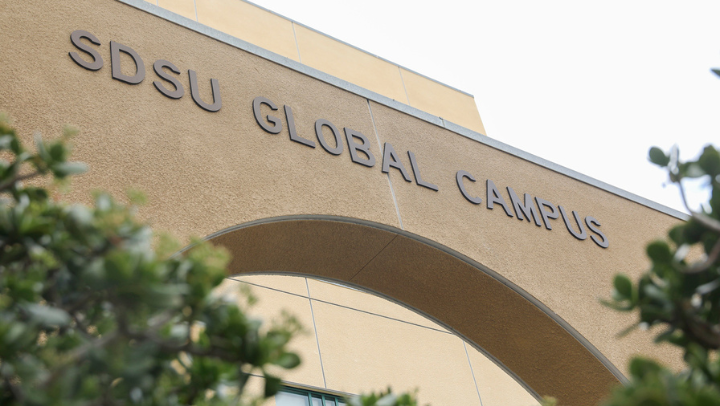Program to Advance Latinx Leaders in Community Colleges Finds a Home at SDSU
The College of Education hosts the year-long fellows program.

The National Community College Hispanic Council (NCCHC) Leadership Fellows Program, hosted in the College of Education, seeks to close a community college diversity gap. Data shows that while about half of Latinx college students nationwide are enrolled in two-year institutions, only 60 of 1,108 community college presidents, or 5.5%, are Latinx.
“Our belief is that there is a need to have leaders in institutions who look like the students that they’re working with,” said Ted Martinez, Jr., executive director of the NCCHC Leadership Fellows Program, which he founded in 2003. “It’s a critical need and we’re doing everything we can to respond to it.”
The response appears to be working. Of the 60 current Latinx community college presidents, 15 are alumni of the NCCHC Leadership Fellows Program.
The fellows program operates on a year-long cohort model with about 25 Latinx community college administrators participating annually. They hear from mentors and presenters who provide them with an understanding of the competencies of community college leadership, offered through a Latinx lens. Part of what makes the model so effective, Martinez said, is that the cohorts become a “familia” — fellows forge valuable connections that provide a continuing support network.
The College of Education offers a doctorate in education with a concentration in community college leadership. It is also home to the Community College Equity Assessment Lab, which helps community colleges support the success of historically underserved students of color. The NCCHC fellows program previously was housed at the University of San Diego.
“We’re so excited to be the new home of the NCCHC Leadership Fellows Program,” said Y. Barry Chung, dean of the College of Education. “It is only fitting that SDSU — a Hispanic-Serving Institution — would be at the forefront of preparing the next generation of Latinx leaders in higher education. The College of Education is a recognized leader in advancing educational equity and we have a long history of impactful research and partnerships in our community colleges. By bringing this program into the fold, we will be able to deepen our impact nationally.”
Martinez added that several of his past fellows, presenters and advisory board members have come through SDSU’s community college leadership program.
“The faculty in the community college leadership program are already out in the Hispanic community, so this will closely align with what they are already doing — and it will allow for a stronger focus on Latinx leadership,” Martinez said. “This is an opportunity to join together to collaborate and develop an even stronger and more comprehensive Latinx leadership platform for community colleges across the country.”



